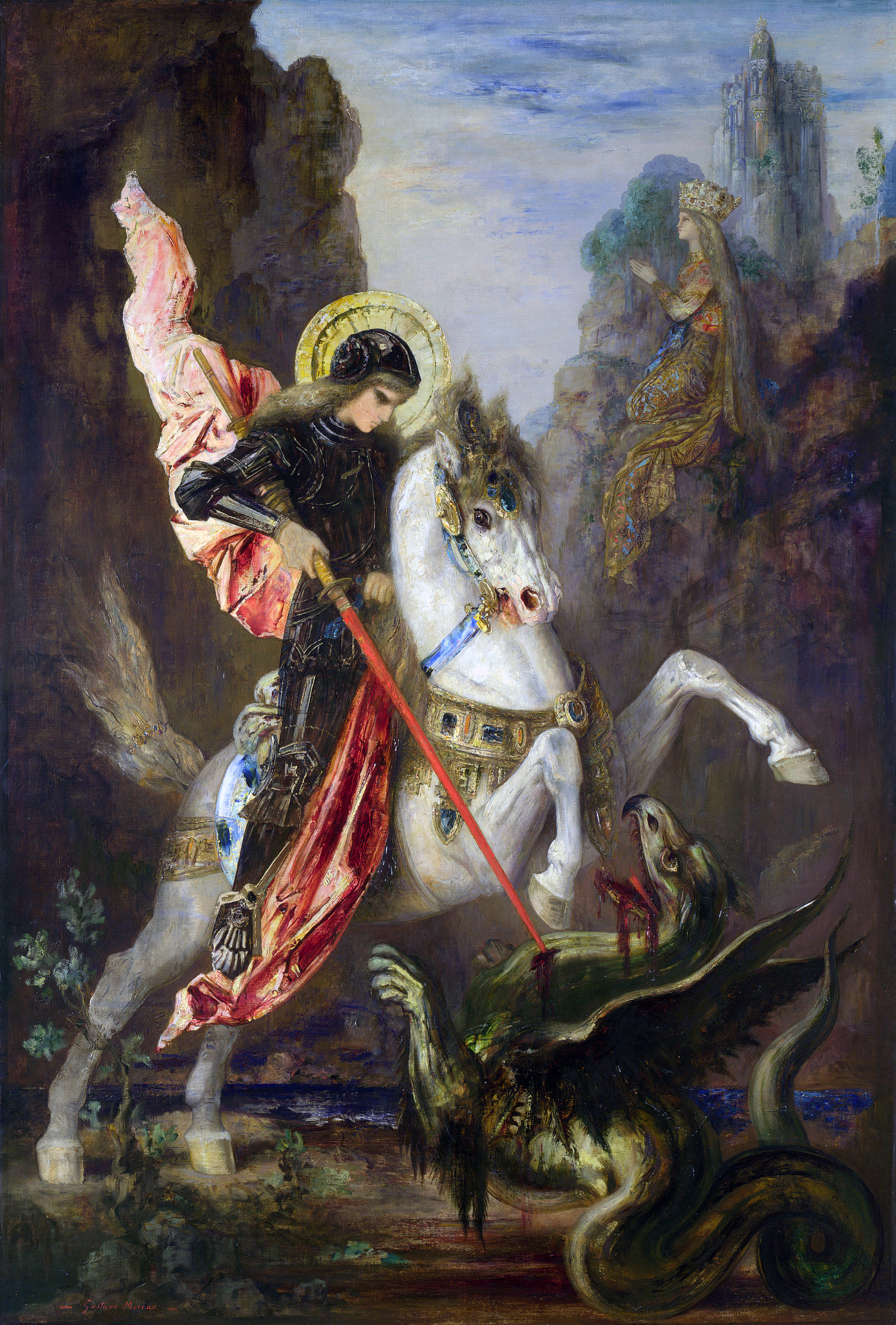The legend has it that Saint George was a highly-ranked soldier of Roman origin who was born in the Middle East. I'm not sure of the year but he lived and was active during the early stages of Christendom, and almost every person who thought of going out of the closet and preaching Jesus' doctrine underwent martyrdom. I suppose that people, as it happens nowadays, coped with existential conflicts and emotional voids they thought the promise of a blissful afterlife would solve.
The legend also has it that Saint George was a holy knight who fought the embodied evil. There are fantasy-tinted stories that tell a confrontation that led the Pope to pull him out from the calendar. Nobody believes in dragons anymore, and the Pope is the least likely person on earth who would ever believe in the supernatural. However, Saint George's legend still exists and its celebration takes place in many European cities and countries. Red roses are given to the ladies, books are suddenly bought and delivered as presents--though I find no association with this holiday and the International Day of the Book. The festivity is somehow celebrated despite the Vatican's orders.
Who cares about the ways Rome takes, when it comes to a national holiday? Saint George represents the pride of several nations. He stands for the ideal of victory every Western people seeks, an ideal based on martial philosophy, defeat or being defeated, subdue or being subdued. Saint George was the champion of a maid and fought a dragon (or a wyvern, in another visual pieces) who would have slaughtered her. Countries under his patronship take pride on such nobility and use it as a national virtue. One of the most famous RAF aircrafts during World War II was baptized after the knight's sword, Ascalon. The military fashion of this myth fits perfectly in Western culture and no kind of commandment could efface it.
The allegorical traits in Saint George conceals many interpretations. The most interesting phenomenon is why many foreign nations took him in, despite temporal and geographical obstacles. Those nations, however, produced folkloric tales that spoke of earlier heroes who were dragon slayers too, thence Saint George appealed to them greatly. There are no more knights, but people still remember them.
Die Schönste Krankheit des Weltalles
Mr. Murphy Says It Better
Acknowledgements
viernes, 23 de abril de 2010
Suscribirse a:
Enviar comentarios (Atom)
Still Life
Lyrics: Joakim Montelius





No hay comentarios:
Publicar un comentario